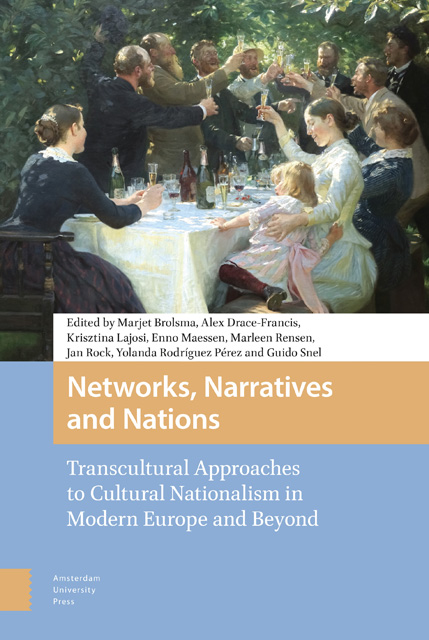 Networks, Narratives and Nations
Networks, Narratives and Nations Book contents
17 - The Faces of Crisis: Rethinking a Key Concept in View of the Transnational Intellectual History of Europe
Published online by Cambridge University Press: 16 November 2022
Summary
Abstract
The present chapter reflects on a number of key controversies that shaped modern history and politics roughly between 1890 and 1945, with a special focus on discourses of crisis. Combining a conceptual history approach with a contextualist reading of political ideas in a transnational perspective, it seeks to reassess some of the key assumptions of research on this topic, many of them going back to the work of Reinhart Koselleck. It forms part of a larger research project seeking to contribute to the rethinking of modern European intellectual history from the vantage point of crisis discourses.
Keywords crisis; critique; conceptual history; transnational history; political modernity; democracy
“Crisis,” a term with a complex history, has emerged as one of the pivotal notions of political modernity. Thus, reconstructing the ways the discourse of crisis functioned in various contexts and historical moments gives us a unique insight not only into a series of conceptual transformations but also into the underlying logic of key political and intellectual controversies. In this respect, Reinhart Koselleck's hypothesis – originally focusing on the long shadows of the Enlightenment, but also seeking to point to the roots of political modernity as such – can be tested on later periods and other cultural contexts as well. Did the emergence of the discourse of crisis signal, and at the same time contribute to, the radical transformation of modern political thinking and action through shifting the horizons of expectation? Nevertheless, rather than thinking in the framework stipulated by the binary of critique and crisis (Kritik und Krise), and being somewhat sceptical of the underlying anti-modernist connotations of Koselleck's seminal early work, I propose here not a “pathogenetic” reconstruction, but an inquiry into the destructive but also creative sides of describing key components and institutions of modernity as crisis-ridden.
Here I propose to analyse how the perspective of crisis sheds light on key assumptions of a given historical moment, also pointing towards solutions beyond the closely knit local/national milieu to discover transnational entanglements. The discourse of crisis is thus not only a framework of temporalization, but also that of spatialization, of modernity, and can thus be turned into a vantage point for transnational analysis.
- Type
- Chapter
- Information
- Networks, Narratives and NationsTranscultural Approaches to Cultural Nationalism in Modern Europe and Beyond, pp. 211 - 222Publisher: Amsterdam University PressPrint publication year: 2022


